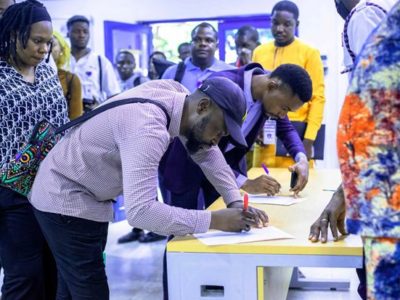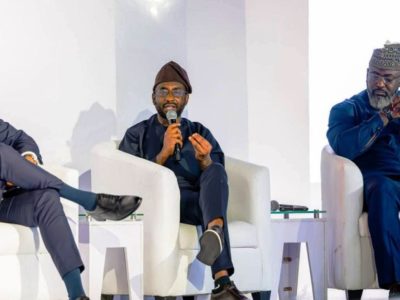Stakeholders are coming to terms with the truth: Africa dream of closing the digital divide is beyond the excitement of using a mobile phone. By MELVIN AWOLOWO
In the last half a decade, most African countries have demonstrated a remarkable growth in mobile telephony to improve connectivity among millions that had never heard the dial tone. Mobile subscription took geometric leaps in several degrees to improve the telephone statistics of African countries. For instance, active telephone subscribers grew from as low as 1.5 million lines in Nigeria to more than 20 million in only five years. It had taking the country more than four decades to grow its telephone subscription to 1.5 million. Other countries show a similar trait. Djibouti grew its telephone subscription by 186%, Liberia, 155% and Mali, 142% all within a spate of three years.
While fast uptake of mobile telephony has often been touted as a sign of ICT diffusion, most experts say high growth of cellular subscribers is an insignificant index to measure the continent’s ability to cross the digital divide. The more realistic indices are still lacking and the reality is that Africa’s rating on the e-readiness is extremely low and the ability of the continent to bridge the gap is weak.
The organisers of the Digital World Africa Conference in Abuja focused on addressing the more concrete pictures of a continent far from joining the emerging information society and getting answers to questions on how Africa can bridge the digital divide. The emphasis was on human capacity building as can be deduced from the theme: “ICTs for education and development”.
High mobile uptake or improve telephony penetration alone does not make a country to bridge the gap. It may expand opportunity for leapfrogging but it does not address the real issues of education, e-health, e-agriculture or e-business and the likes. It only constitutes one of the encouraging indices that a country is making progress at expanding connectivity. Africa needs to build human capacity to run its desire for a place in the information society, the Nigerian Communications Commission (NCC), THE GROWING Business Foundation and the tt30 Club Rome that put together the two day event were agreed on this.
The reality of a digital divide means that there must be a paradigm shift in thinking and everything else including the concept of leadership,” said prof. Ernest Wilson of the university of Maryland, USA, in his presentation on ‘Practical Realities in Bridging the Digital Divide’. While education and training are fundamental to creating content and enhancing spread of content for the new information society, the ability of countries to be part of the knowledge society is inherently depended on the ability of its leadership to lead the way by undiluted commitment to fostering national development on ICTs. Wilson argues for the enthronement of e-leadership.
Nigerian born professor Raymond Akwule of the George Mason University, USA, has the same mindset. Human capital through formal education and on-the-job training are fundamental to building a digital economy with a robust GDP. But Africa needs outside help to get it right. Faced with the challenges of improving its healthcare and putting more food on the table, government on the continent are wont to channel the little resource in addressing these primary needs which tended to make ICT issues relatively unimportant. The whole essence of the digital Conference was to create an open window where the Africa could get help from abroad, said Nigeria’s Chief regulator and CEO of the NCC Ernest Ndukwe.
Once the international stakeholders’ community could be sensitized to the challenges the continent faces in entering the information age, a pool of solutions could be achieved and targeted at addressing those problems. The continent must look out to share the experiences of others at bridging the divide. While initiative such as the $100 laptop could create wider access but it would not address the core problem of how to ensure a sustainable access to ICT resources and eventually creating an army of ICT knowledgeable people in a continent where the literacy level for the over 850 million people is still below 35%.





























